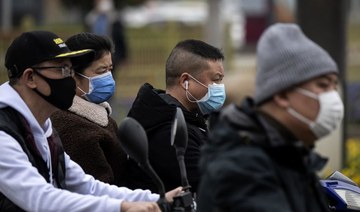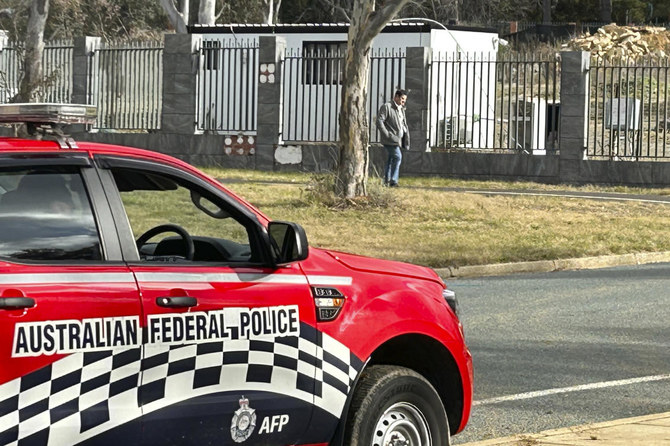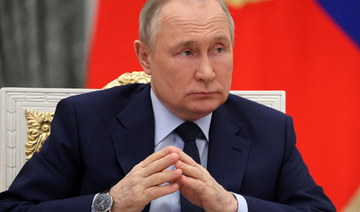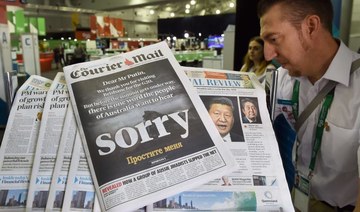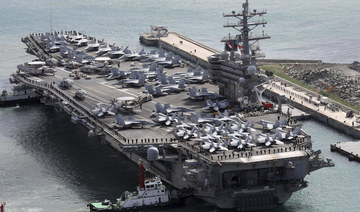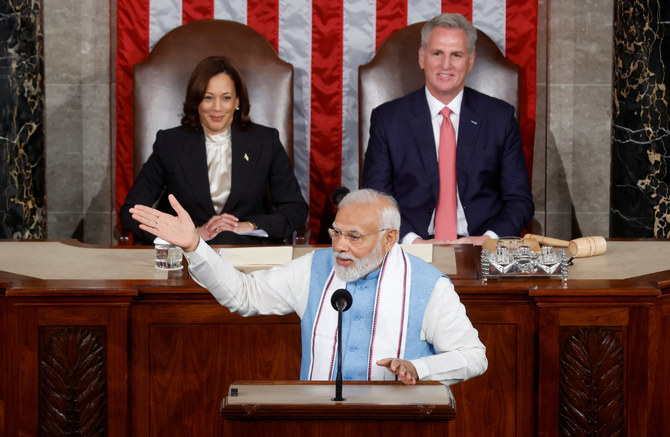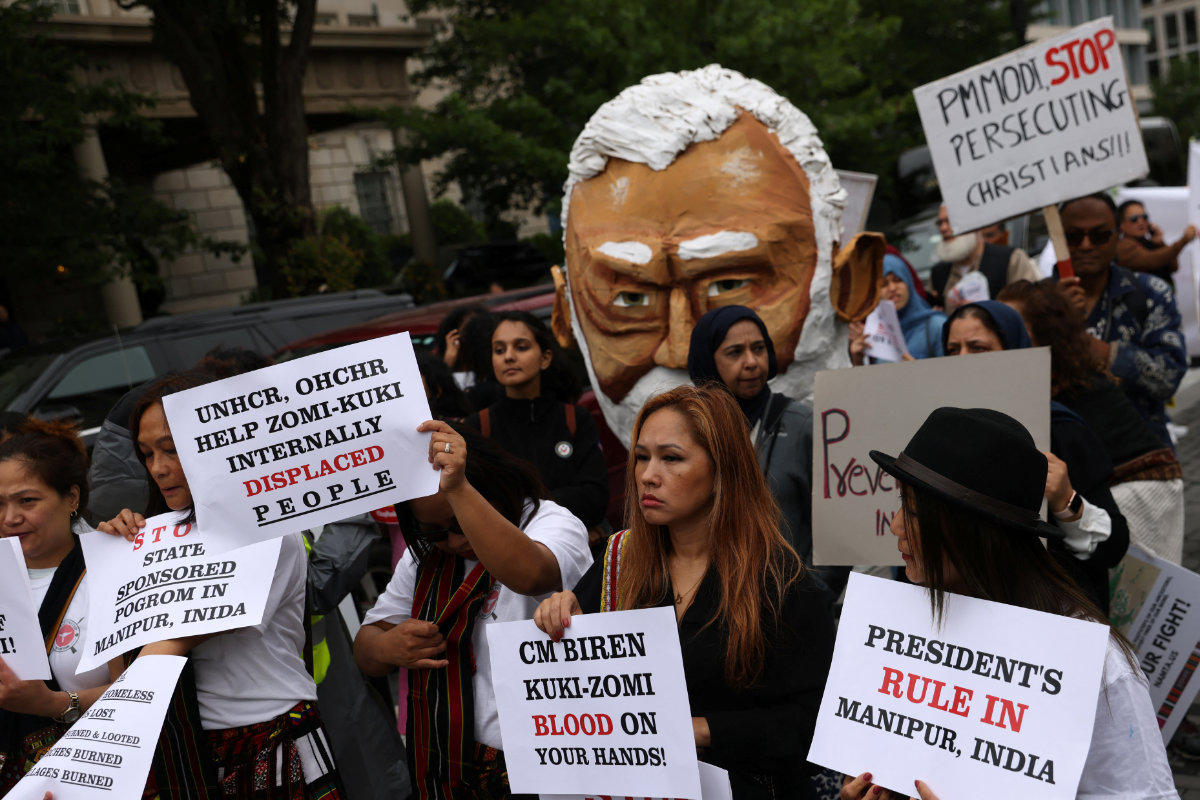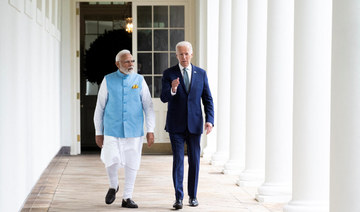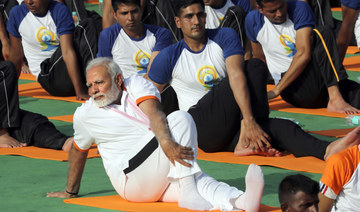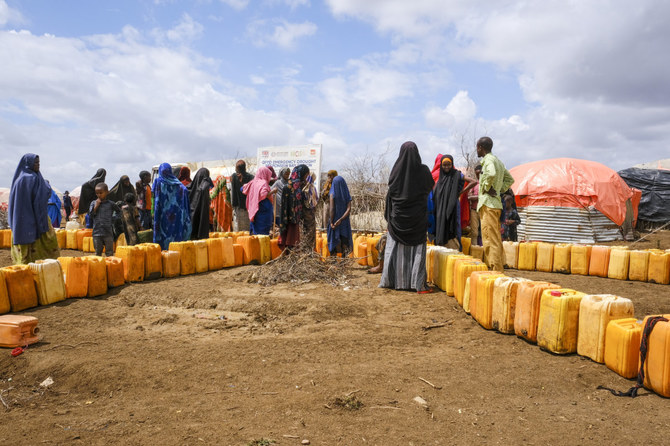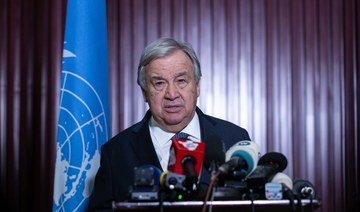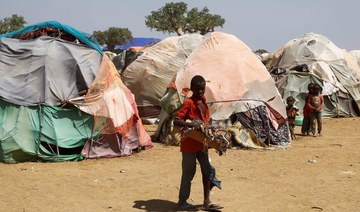PHNOM PENH: Cambodia’s parliament voted unanimously to amend an election law on Friday to penalize anyone who boycotts next month’s poll, which critics have said will be a sham because of Prime Minister Hun Sen’s efforts to stamp out all opposition.
Hun Sen, who has held power in Cambodia for more than three decades, last week ordered the rubber-stamp parliament to revise the law so that anyone who does not vote in the general election on July 23 will be barred from contesting any future elections.
“... Individuals wishing to stand for election must participate in voting events prior to their mandate,” Sar Kheng, deputy Prime Minister and Interior Minister, said in a statement posted on his official Facebook page after the vote in parliament.
“The amendments impose fines and punish individuals who disrupt and obstruct the voter registration process...(and) the election,” he added.
At the last election in 2018, the Hun Sen’s Cambodian People’s Party (CPP) won all of the parliamentary seats, having scored 4.8 million votes out of the 6.9 million cast.
There have been no overt calls for an election boycott but critics have expressed alarm over what they see as a campaign of intimidation and public threats by Hun Sen and the CPP ahead of an election they are certain to dominate.
“This really shows that this is a dictatorship that is playing in the democracy game,” Phil Robertson of Human Rights Watch said, adding that “civil rights and political liberty have been completely, totally restricted by Prime Minister Hun Sen and his government.”
Hun Sen’s administration has denied targeting opponents and says it is enforcing the law.
The election commission said earlier this month that anyone urging people not to vote would be fined or imprisoned.
The CPP will run virtually unopposed next month, after the election commission disqualified the sole opposition Candlelight Party from running, citing improper paperwork.
Ahead of election, Cambodia amends law to bar non-voters from contesting in future
Ahead of election, Cambodia amends law to bar non-voters from contesting in future
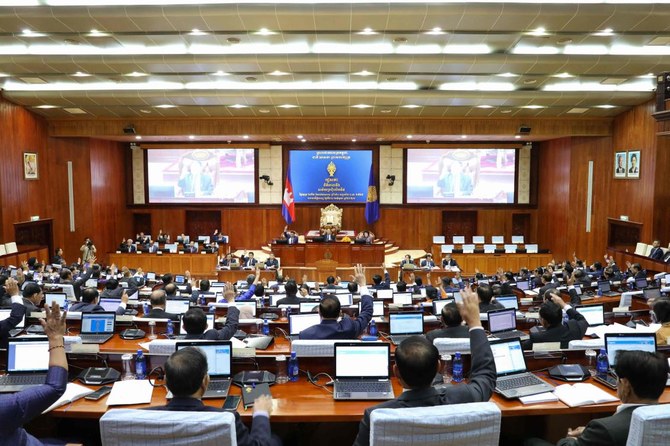
- Anyone who does not vote in the general election on July 23 will be barred from contesting any future elections
- Prime Minister Hun Sen’s Cambodian People’s Party is virtually unopposed in next month’s polls





